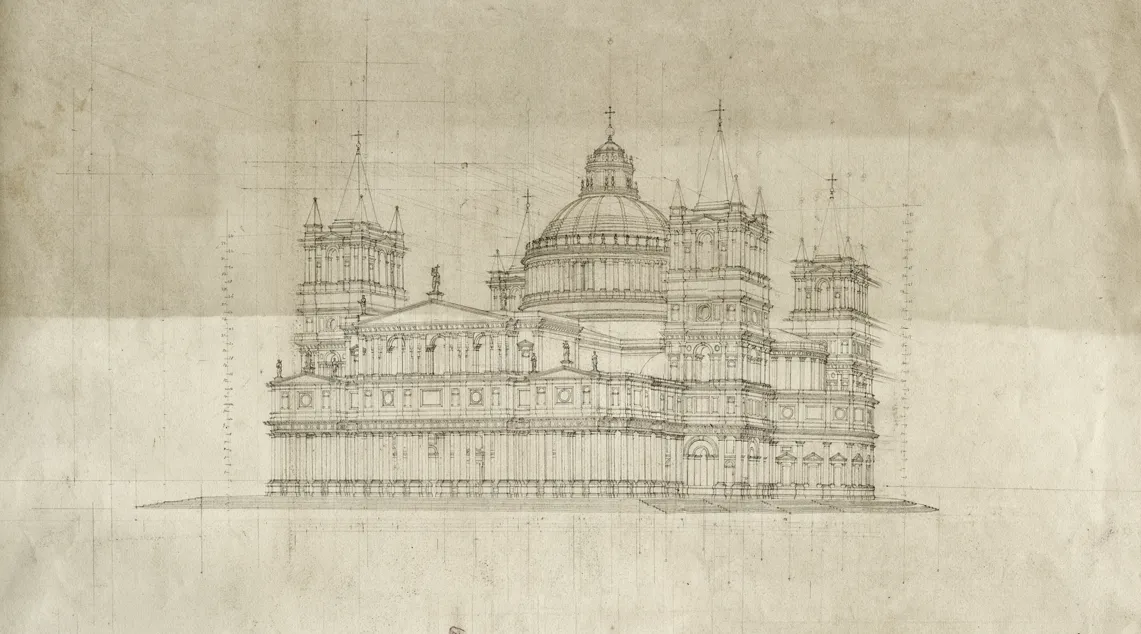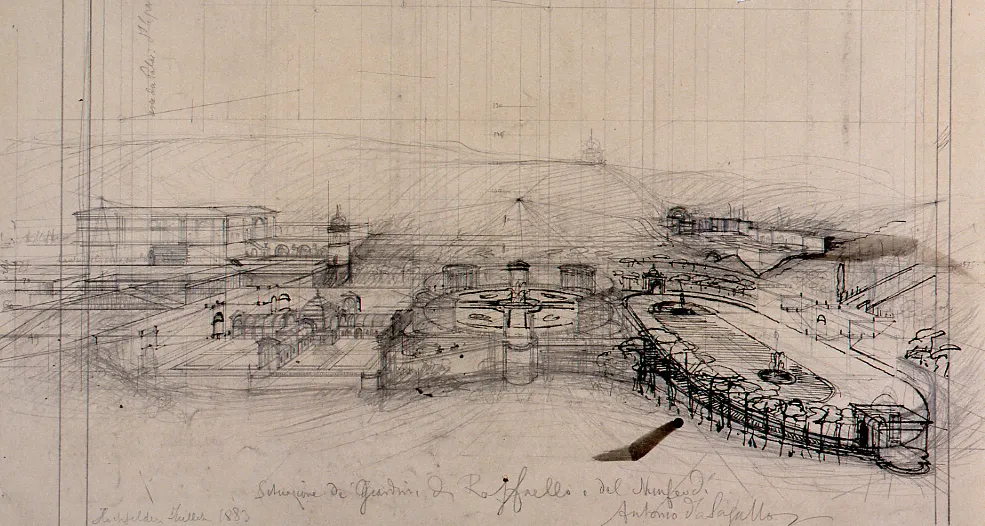
Renaissance Architecture
- Hosting organisations
- Institut für Kunstgeschichte
- Responsible persons
- Ao. Univ.-Prof. Dr. Josef Ploder
- Start
- End
The research project aims the digitalisation of the estate of the Swiss architectural historian Heinrich von Geymüller (1839-1909). Geymüller has extended the discipline methodologically by two fundamental innovations: On one hand he systematically focused on the study of architectural drawings and with it on the history of architectural design by supporting adequate reproductions in print (facsimile). On the other hand Geymüller tried to visualize “restorations” and “reconstructions” graphically.
The extensive estate consists of a wide variety of sources that show the multifaceted areas of interest and comprehensive knowledge of the architectural historian. The collection contains handwritten notes and sketches, manuscripts, large-format architectural drawings, excerpts from publications and archives, photographs and negatives, prints, proofs, as well as an extensive correspondence among others with prominent partners such as Jakob Burckhardt, Aby Warburg, Heinrich Wölfflin, Gustave Moreau, etc
The data model will be adjusted according to the following selected topics complexes:
-
The designs for the new building of St. Peter in Rome
-
The “Toscanawerk” (one of his most important publications: “Die Architektur der Renaissance in Toscana”)
-
Du Cerceau and the architecture of the Renaissance in France
-
The “Thesaurus” (a comprehensive and systematic collection of architecturally related pictures)
-
Questions about theory and practice of heritage conservation
The accessibility of digital file should not be selected by the “material” itself, but allow scientists also contextualization and answers of specific questions from the dataset. In addition to better accessibility to the estate especially biographical, chronological, topographical and research historical connections should be made visible.
